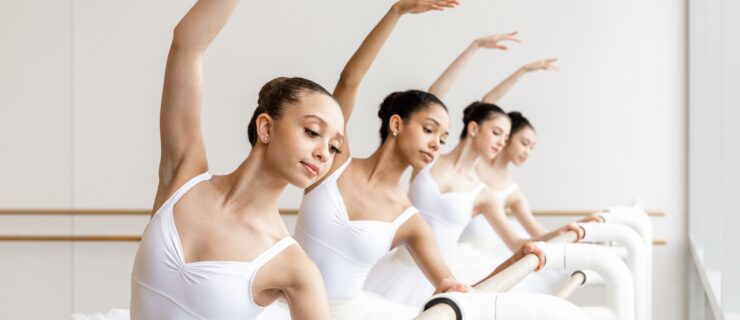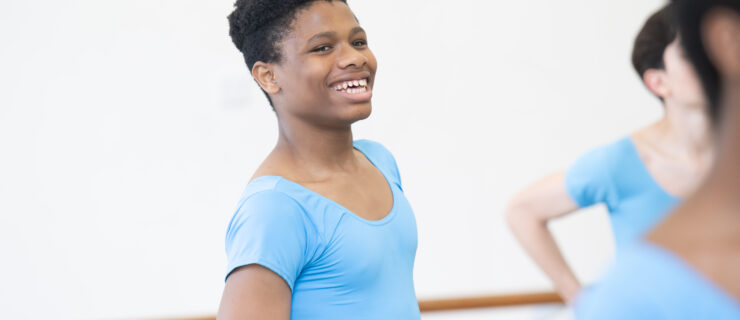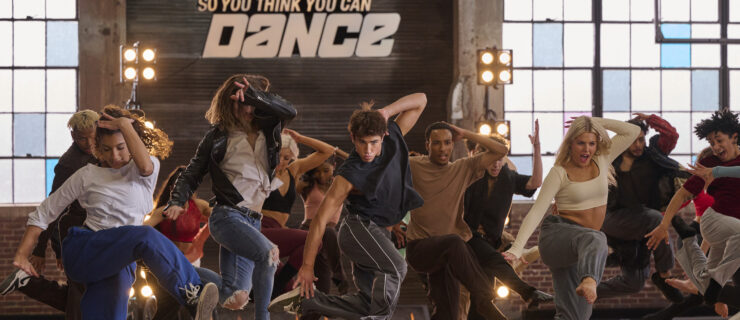How to Balance Studio Training With a Busy Dance Convention Schedule
Attending multiple conventions throughout the year has become increasingly popular among dancers. Conventions provide valuable exposure to world-class faculty, not to mention coveted scholarships and assisting opportunities. But most dancers at weekend conventions also have a full plate of classes at their home studios during the week—a difficult lifestyle to maintain. So, should you be adding more conventions to your packed schedule? Here are the pros and cons to consider.
Pro: Conventions challenge you.
Conventions offer opportunities to challenge yourself in an unfamiliar environment. Dance Zone protégé company member and West Coast Elite workshop apprentice Emily Snow recommends using conventions to step outside your comfort zone, especially with dance styles that you may not practice as much at your home studio. “Hip hop is not my strongest style, but I still attend hip-hop conventions,” Snow says. “I can see where I’m at, and learn what I need to work on to get stronger.”
Con: Overtraining can lead to injuries.
Keeping up with the physical demands of a nonstop studio-to-convention schedule can quickly become difficult. Showstopper faculty member Jessica Walker believes a day of rest and a good sleep schedule are vital for injury prevention. “Whether it’s a day during the week or a weekend off, rest is crucial,” she says. “That’s when the body is going to repair itself.”

Emily Snow (second left) with friends at Tremaine Dance Convention (courtesy Snow)
Pro: Conventions help dancers learn independence.
By traveling to new cities, dancers are challenged to take on more responsibility. Radix faculty member Talia Favia notes it’s usually up to the dancers to take care of themselves on these weekends. “You don’t always have your mom or dad around all day bringing you what you need. You have to prepare everything in this type of chaotic environment.”
Con: A packed dance schedule leaves little space for anything else.
If a dancer is overcommitted between studio training and conventions, it may be difficult to keep up with academics or other activities. Snow, who was recently accepted academically into Pace University, says, “At school, you have to have a strong drive, communicate with your teachers, and be really good with time management.” And founder of Manhattan Dance Project Bill Hotaling notes that extracurricular activities are important to developing your artistry outside of the studio. “Dancers that take time off to perform in their school’s choir, band, or musical gain additional time in front of an audience and develop different performance skill-sets, while also resting their bodies from the rigors of dance training,” he says. Dancers hoping to add conventions to their schedule may have to sacrifice some of these valuable opportunities.

Favia working through a combination at a convention (Chloe Hamilton, courtesy Favia)
Pro: Conventions are a prime spot to network.
At a convention, you never know who you’re going to meet. You could share an elevator ride with a dance-world celebrity, or meet your new best friend while dancing with them in class. Favia believes that conventions are an incredible opportunity for dancers to connect with faculty, especially if they attend regularly. “I’ve seen a lot of kids that come to multiple cities, and I’m able to watch their growth. You get to know them on another level,” she says.
Con: Attending multiple conventions doesn’t guarantee a big win.
Favia says, “There’s this myth that if you come to eight cities and go to Nationals, you’ll win. For most people, it doesn’t work that way. You have to know what you want, work hard, and take it one step at a time.”
In the end, your convention and training schedule is a personal decision. Not everyone’s path will look the same, but the best path is one that prioritizes your unique goals and allows you to take necessary steps towards achieving them—whether that’s attending one convention a year, or one every weekend.




